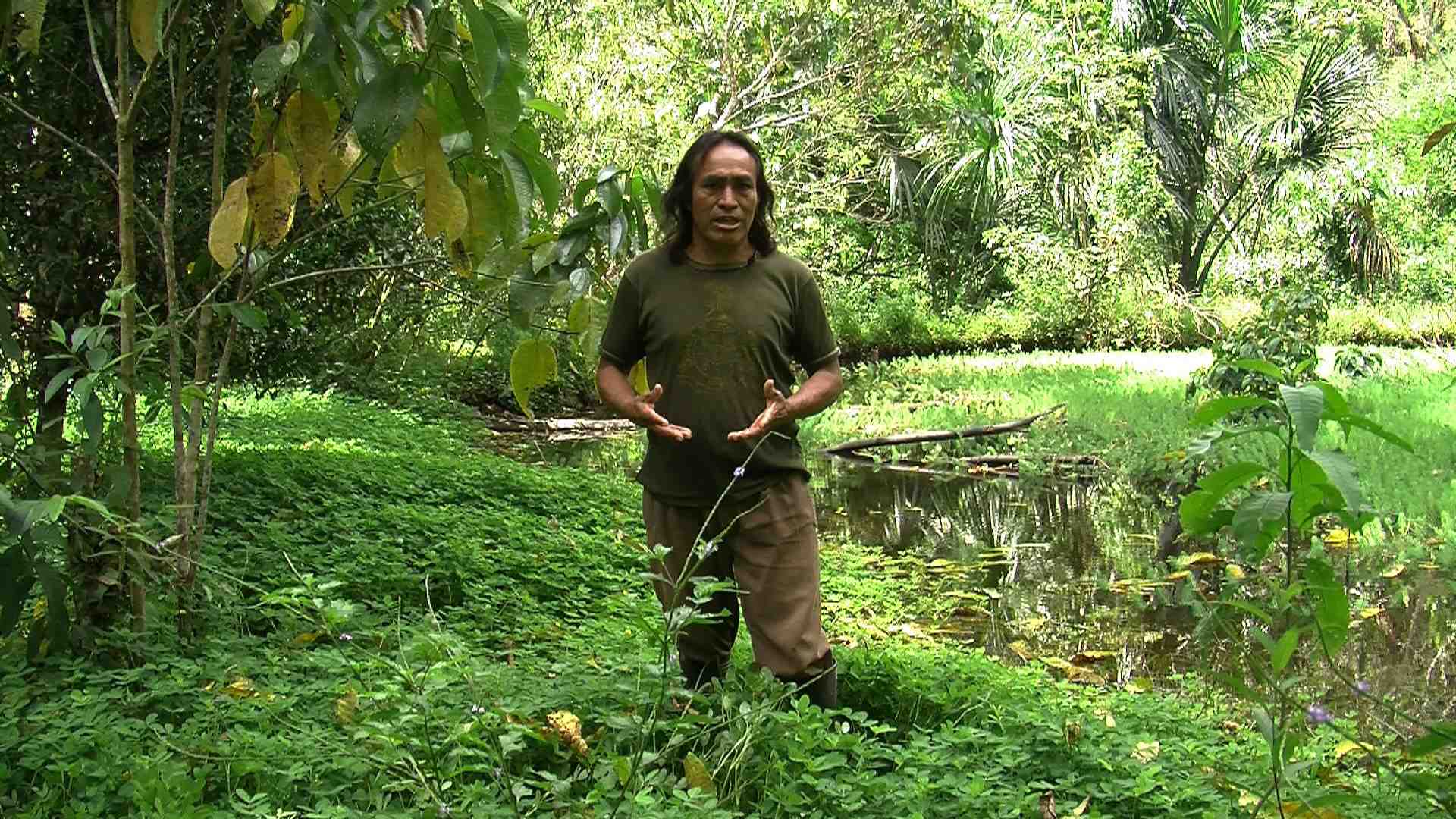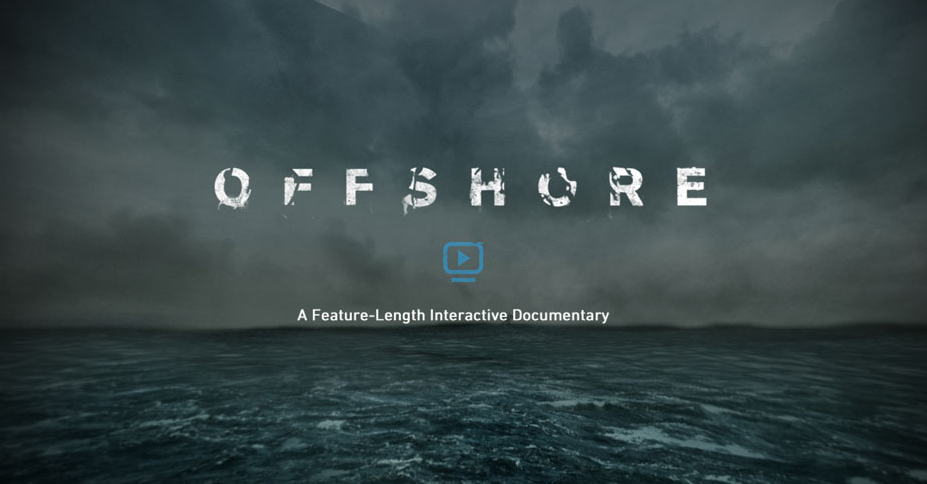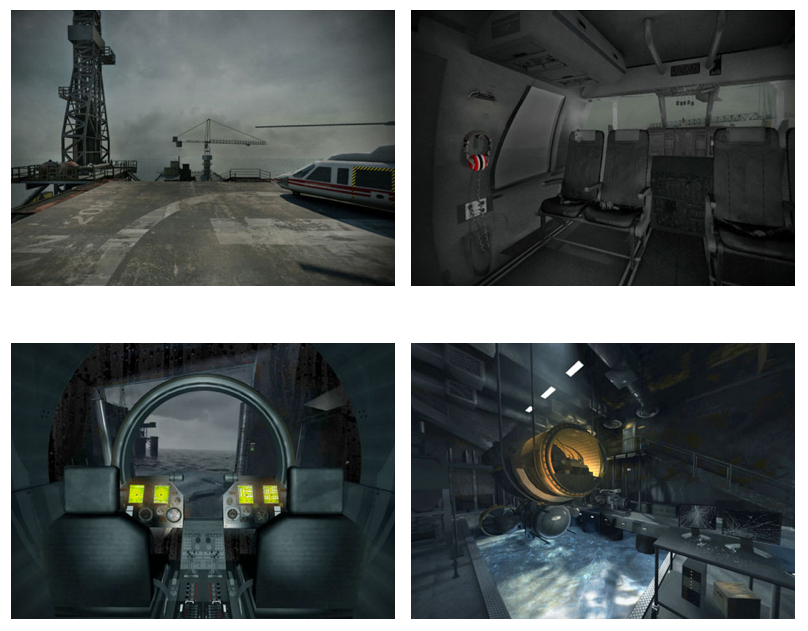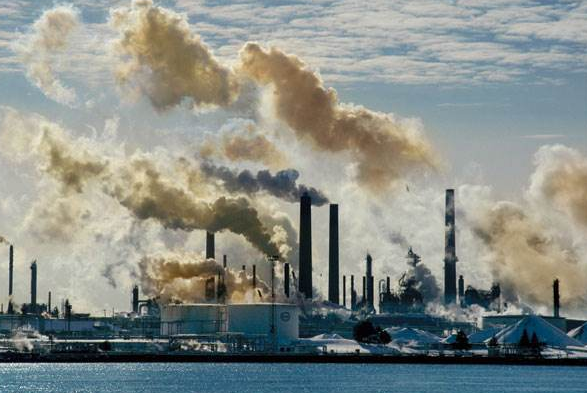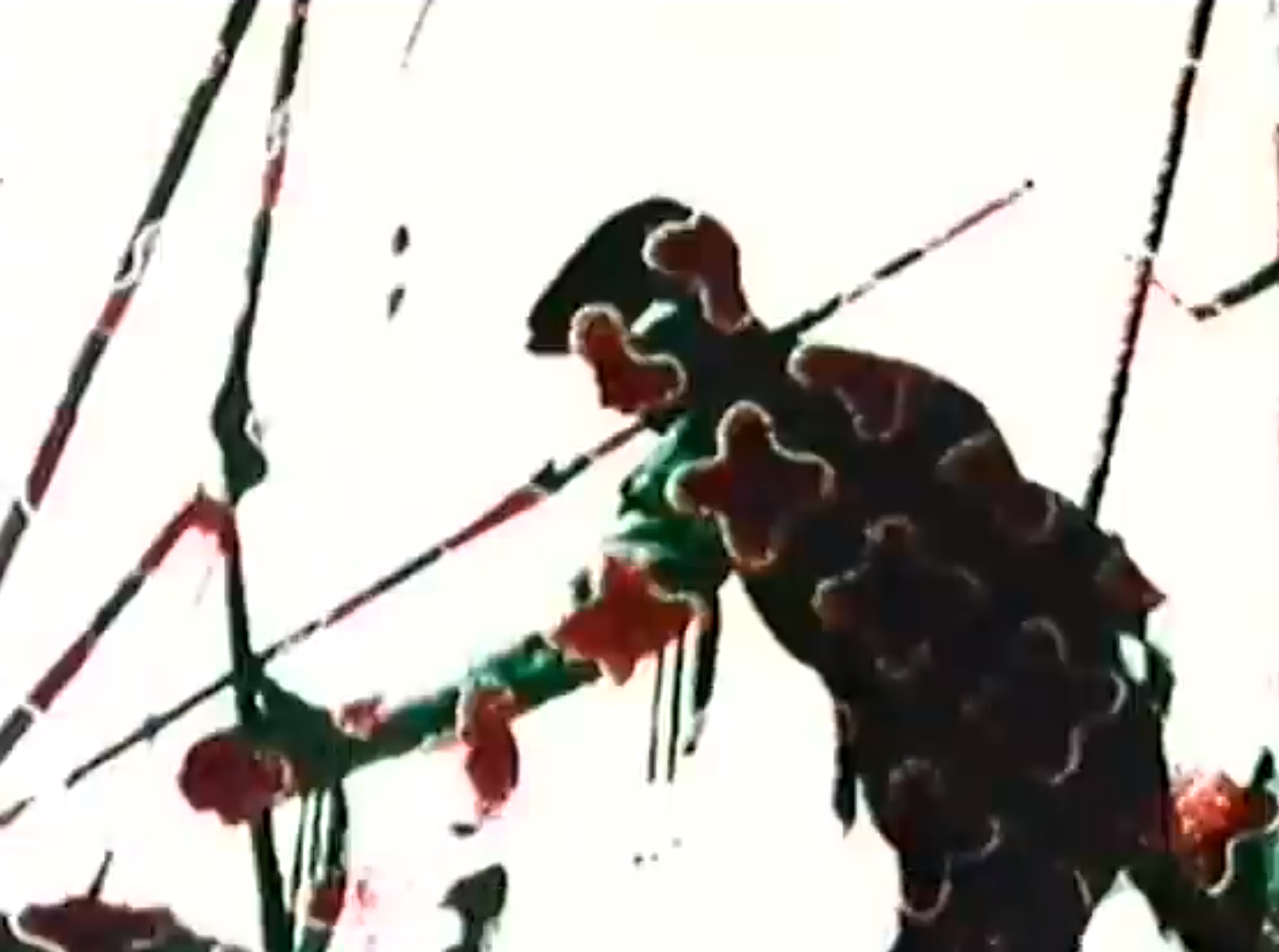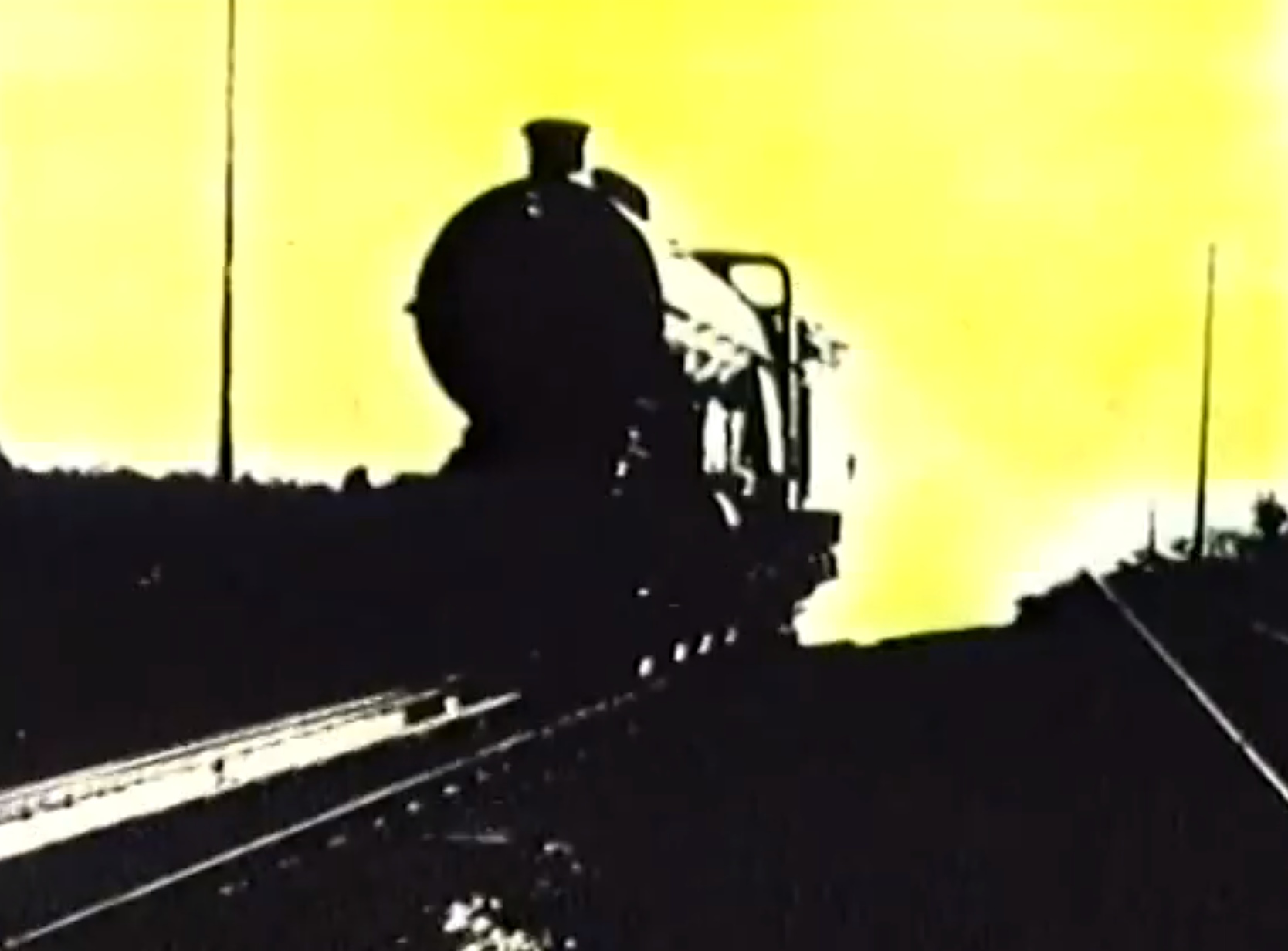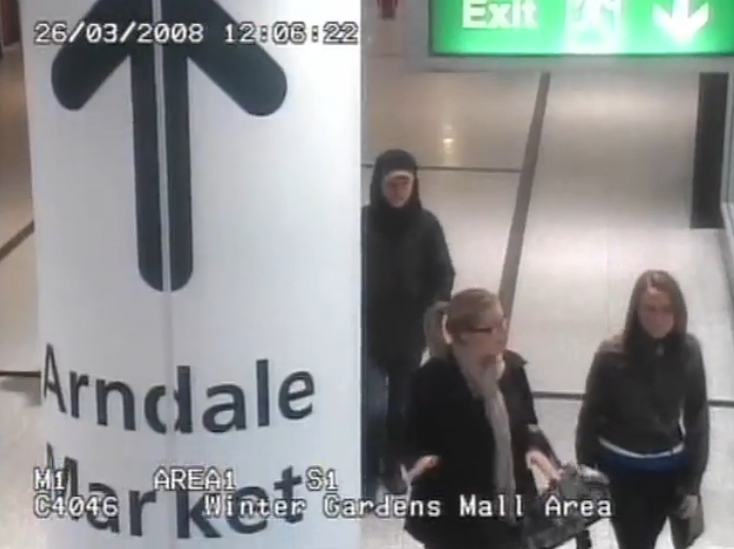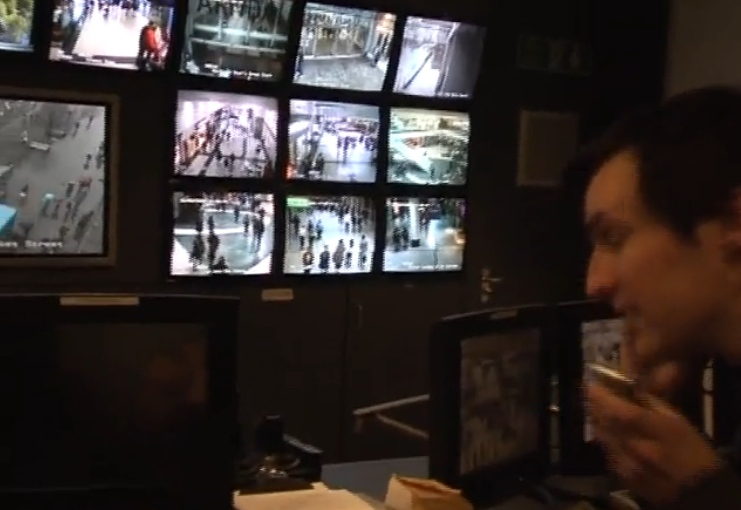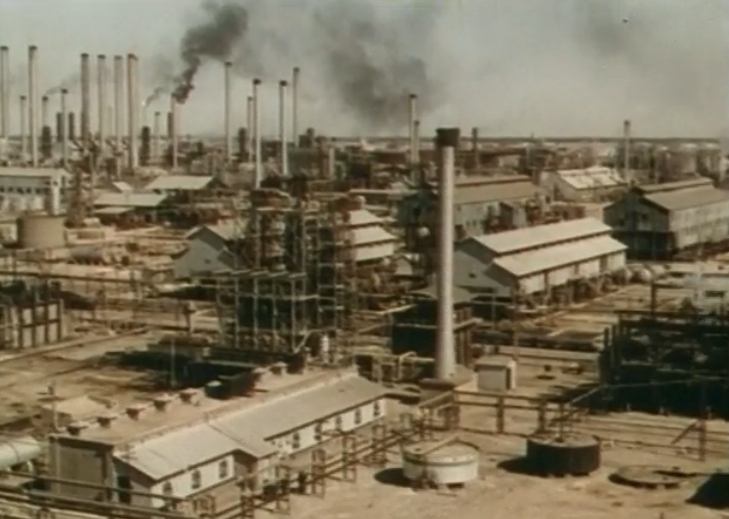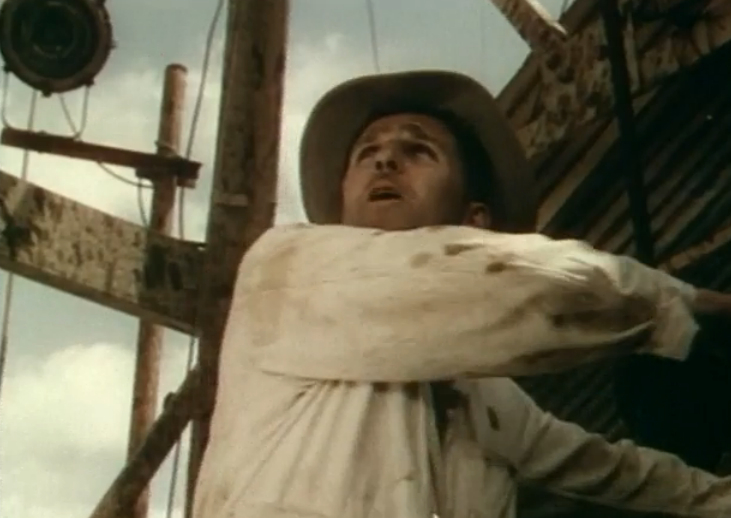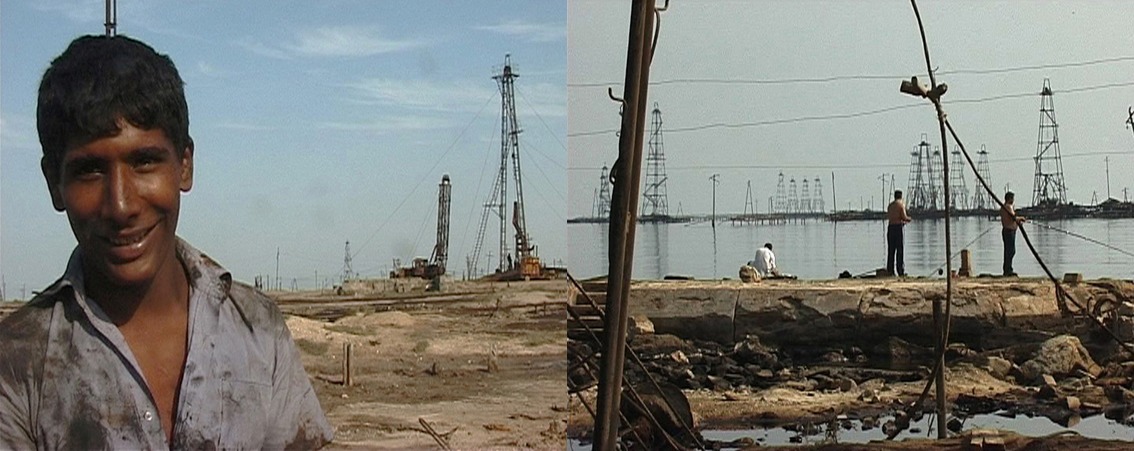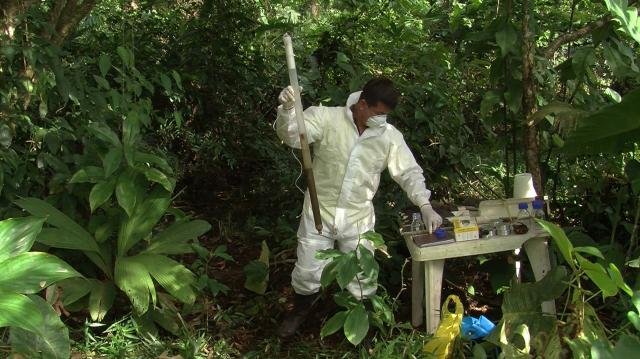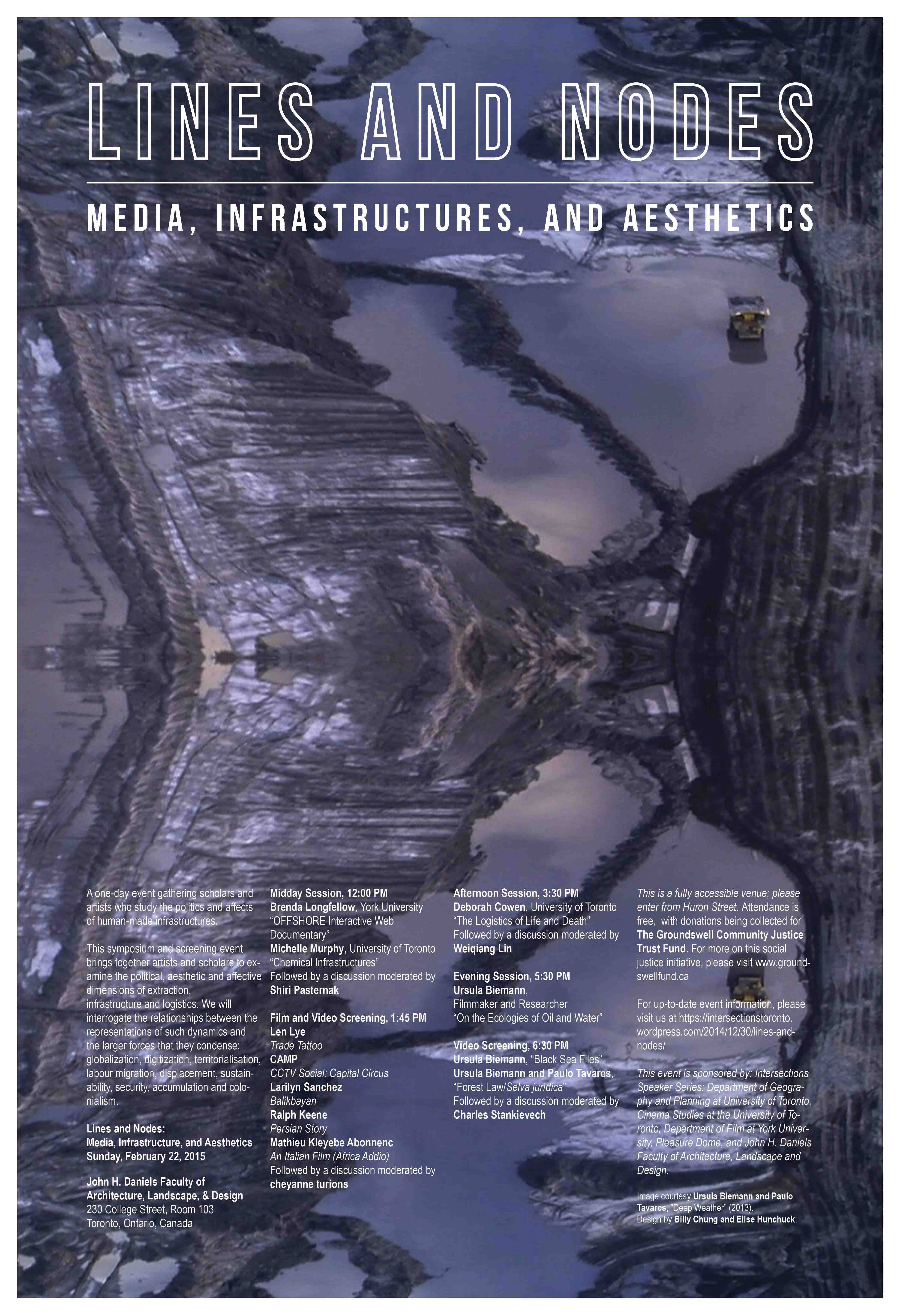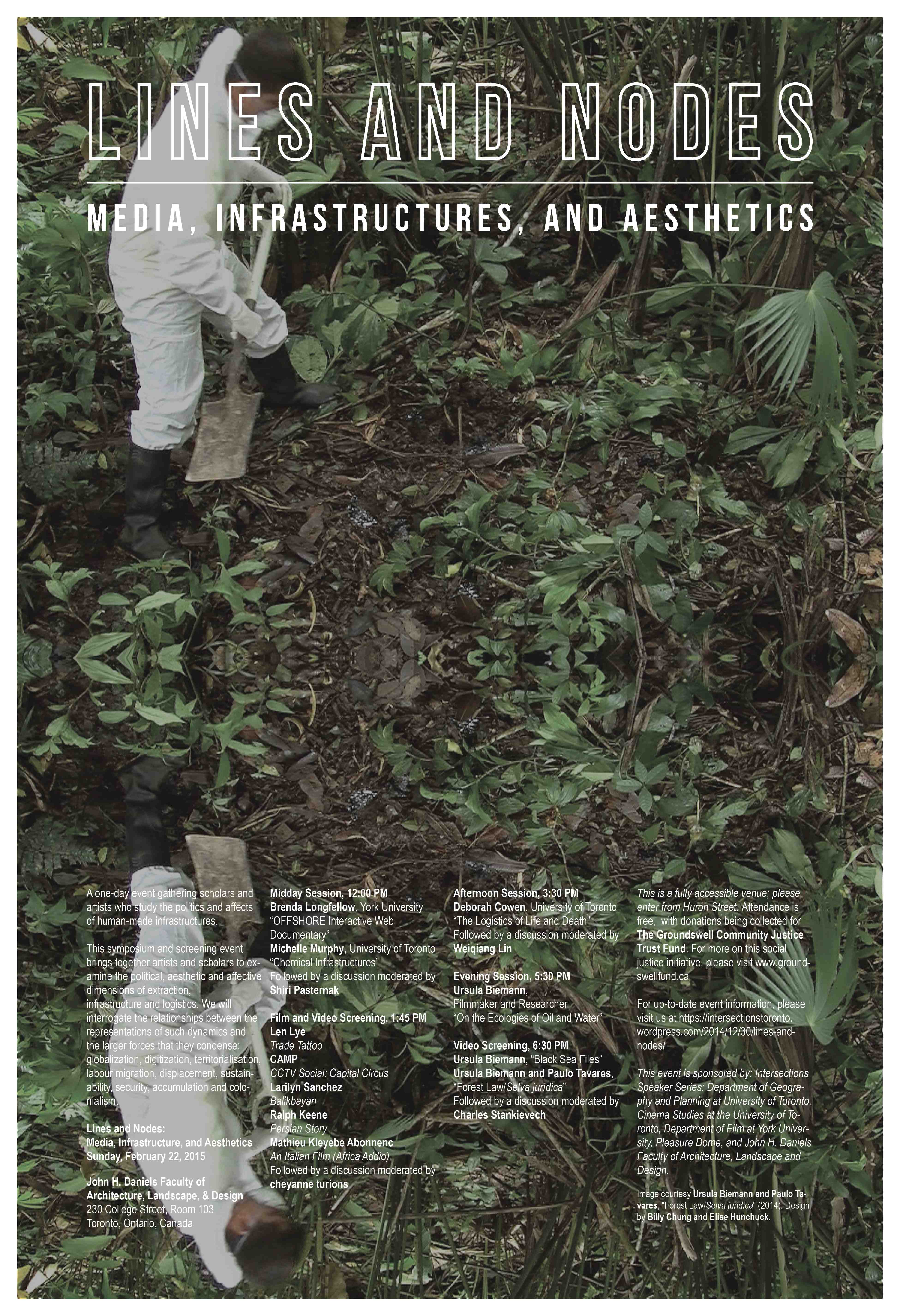Sunday, February 22, 12 – 8 PM, Free!
@ John H. Daniels Faculty of Architecture, Landscape, and Design, University of Toronto, 230 College Street, Rm. 103
Presented by the Department of Geography and Program in Planning Intersections Speakers Series at the University of Toronto and sponsored by Pleasure Dome, Cinema Studies at University of Toronto and Cinema and Media Studies at York University.
Part of Winter 2015
This symposium and screening event will bring together artists and scholars to examine the political, aesthetic and affective dimensions of extraction, infrastructure and logistics. We convene this event to interrogate the relationships between the representations of such dynamics and the larger forces that they condense: globalization, digitization, territorialization, labor migration, displacement, sustainability, security, accumulation and colonialism. The symposium’s keynote presenter will be Swiss filmmaker/researcher Ursula Biemann, who has for the past twenty years produced a respected body of essay films that interrogate global relations under the impact of the accelerated mobility of people, resources and information. She will screen three recent works alongside a program with works by CAMP, Mathieu Kleyebe Abonnenc & others. The event will also feature presentations by Brenda Longfellow, Michelle Murphy and Deborah Cowen.
SYMPOSIUM SCHEDULE:
12-1:30pm
Brenda Longfellow presents OFFSHORE an interactive web documentary
Michelle Murphy presents Chemical Infrastructures
OFFSHORE is an interactive web documentary and installation that explores the dark waters of the global offshore oil industry in the wake of the 2010 Deepwater Horizon explosion. This presentation will take viewers through a short exploration of the key design elements of the project while reflecting on the project’s methodologies and creative evolution.
Michelle Murphy’s Chemical Infrastructures seeks to theorize an alternative ontological politics of reproduction that exceeds embodiment and encompasses spatially and temporally extensive distributions of living-being in the already altered world. “I take up these questions through research on the St. Clair and Detroit Rivers that passes between Ontario and Michigan, connecting both Chemical Valley and Detroit. Here I am interested in how reproduction is rearranged through the chemical infrastructures that petro-chemical production make. The project joins together approaches to reproductive justice and ecological justice.”
Discussion moderated by Shiri Pasternak
1:45-3:15
Film & Video Screening:
Trade Tattoo, Len Lye (5 min, 35 mm on video, 1937 UK)
Commissioned by the British General Post Office to make a film about the need to ‘post early’, Len Lye conceived of the British working day as having an overall rhythmic pattern like a tattoo (a mass display with music). He was influenced by Walther Ruttmann’s 1927 film Berlin which presented a day in the life of that city as a ‘symphony’. Lye, who shared the working-class sympathies felt by many of his GPO colleagues, described Trade Tattoo as an attempt to convey “a romanticism about the work of the everyday, in all walk/sit works of life”.
CCTV Social: Capital Circus, CAMP (20 min, video 2014 UK)
In this inquiry into surveillance, the image and power, CAMP collaborated with Manchester Metropolitan University and Arndale Shopping Center to open working CCTV environments to a general audience. Surveillance feeds capture a man getting members of the public to sign an “image-release” form, a provision of the UK Data Protection Act, reshifting dynamics of image control.
“The CCTV control room of the new Arndale Centre has full coverage of the mall’s thoroughfares. Manchester was the first industrial city in the world, the city where Engels wrote The Condition of the Working Class in England. The mall in this historic city-center was the site of an IRA bombing in 1996, the largest on U.K. soil, and its rebuilding (to create the largest mall in Europe) was the start of Manchester city’s regeneration program. A man walks through these now indoor ‘market’ streets, getting almost 100 members of the public to sign ‘image-release’ forms, which combines provisions from the U.K. Data Protection Act with the usual filming permissions. Through this we get access to the surveillance feeds from the mall’s camera network, and its methods of real-time videography, visible in Capital Circus” (CAMP)
Balikbayan (Homebound), Larilyn Sanchez in collaboration with Riza Manalo (5 min, video 2003 USA/Philippines)
In this meditation on the body, loss and migration, a daughter sends a letter to accompany her mother’s journey back home, detailing gifts both sacred and sensible for the family.
Persian Story, Ralph Keene (20 min, 16 mm on video 1952 UK )
This fascinating industrial, commissioned by the Anglo-Iranian Oil Company, is a paean to the utopian potentials of petroleum and a glimpse at pre-revolutionary Iran. Made in the midst of the nationalization of Iran’s oil industry, Persian Story traces the extraction of oil from Iran’s hinterland “where there was nothing” to the city of Abadan, a “temple to the 20th century god of oil.” Thanks to the BP Video Library and Mona Damluji.
An Italian Film (Africa Addio), Mathieu Kleyebe Abonnenc (28 min,video 2012 France)
With metallurgical process as historical excavation, Abonnenc’s video revisits the colonial extraction and plundering of copper from the Congo.
Discussion moderated by cheyanne turions
4:30-5:30
Deborah Cowen, Associate Professor in the Department of Geography
Talk: The Logistics of Life and Death
In this talk, Deborah Cowen draws on her recent book The Deadly Life of Logistics to track the material and calculative life of logistics, from the biopolitics of the battlefield to the corporate boardroom, and back again. She examines a series of key events – from the rise of petroleum warfare, to the birth of the modern supply chain, to the crisis of the ‘Somali pirate’- to highlight the ubiquity of logistics and the profound political, economic and martial transformations that remain hidden in plain sight. Not simply a technocratic field of management, logistics is a highly political technoscience that governs the geopolitics of circulation, recasting state borders and blurring the boundaries of war and trade.
Discussion moderated by Weiqiang Lin
5:30-6:30
Ursula Biemann, Doctor honoris causa in Humanities, Umeå University, Sweden
Talk: On the Ecologies of Oil and Water & Discussion
Based on comprehensive research, the artist elaborates in her video works the far-reaching territorial transformations due to the extraction and engineering of resources, drawing attention to the biological and social micro-dynamics at work in these massive physical encroachments. Engaging with the political ecology of oil and water, the artist interweaves vast cinematic landscapes with documentary footage and academic findings to narrate a changing planetary reality. Discussing her artistic practice in the projects Black Sea Files, Deep Weather and Forest Law, Biemann particularly raises questions regarding the entanglement of aesthetics, ecology and geopolitics.
6:30-8:00
Ursula Biemann Screening & Discussion
Black Sea Files (43 min, 2-channel video, 2005)
Black Sea Files is a territorial research on the Caspian oil geography: the world’s oldest oil extraction zone. A giant new subterranean pipeline traversing the Caucasus will soon pump Caspian Crude to the West. The line connecting the resource fringe with the terminal of the global oil circulation system runs through the video like a central thread. However, the trajectory followed by the narrative is by no means a linear one. Circumventing the main players in the region, the video sheds light on a multitude of secondary sceneries. Oil workers, farmers, refugees and prostitutes who live along the pipeline come into profile and contribute to a wider human geography that displaces the singular and powerful signifying practices of oil corporations and oil politicians. Drawing on investigatory fieldwork as practiced by anthropologists, journalists and secret intelligence agents, the Black Sea Files comment on artistic methods in the field and the ways in which information and visual intelligence is detected, circulated or withheld.
Forest Law/Selva jurídica, Ursula Biemann and Paulo Tavares (30 min. video from 41 min. video installation, 2014)
Forest Law is a collaborative project with Brazilian architect Paulo Tavares drawing on research carried out in the oil-and-mining frontier in the Ecuadorian Amazon— one of the most biodiverse and mineral-rich regions on Earth, currently under pressure from the massive expansion of extraction activities. At the heart of Forest Law is a series of landmark legal cases that bring the forest to court and plead for the rights of nature. One of the paradigmatic trials has recently been won by the indigenous people of Sarayuku based on their cosmology of the living forest.
Moderated by Charles Stankievech
This program is adapted from the recent Lines and Nodes symposium in New York curated by Brooke Belisle, Leo Goldsmith, Ben Mendelsohn, Sukhdev Sandhu, Nicole Starosielski, and Chi-hui Yang (www.linesandnodes.com).
For more info on 2015 Intersections Speakers Series
Presenters Biographies:
Ursula Biemann is an artist, writer and video essayist. Her artistic practice is strongly research oriented and involves fieldwork in remote locations where she investigates global warming and the political ecologies of oil and water. The Broad Art Museum Michigan recently awarded her with a commission for a new video work Forest Law (2014), in collaboration with Paulo Tavares on the cosmopolitics of Amazonia. Biemann is part of World of Matter, a collaborative project exposing and interlinking global resource ecologies. Her video installations are exhibited at the International Art Biennials of Istanbul, Liverpool, Sevilla, Shanghai, Gwangiu, Montreal and in museumsworldwide. She published several books, is appointed Doctor honoris causa in Humanities by the Swedish University Umea and received the 2009 Swiss Prix Meret Oppenheim. www.geobodies.org
Deborah Cowen is Associate Professor in the Department of Geography at the University of Toronto. Her research explores the role of organized violence in shaping intimacy, space, and citizenship. She is the author of The Deadly Life of Logistics: Mapping Violence in Global Trade (Minnesota 2014) and Military Workfare: The Soldier and Social Citizenship in Canada (UTP 2008), and editor of the Geographies of Justice and Social Transformation book series at UGA Press and of the journal Environment and Planning D: Society and Space.
Weiqiang Lin graduated from Royal Holloway, University of London in 2014 and was awarded a PhD in geography (funded by the UK Commonwealth Scholarship). His supervisors were Tim Cresswell and Peter Adey. His research interests converge around issues of mobilities and infrastructures, air transport, migration and transnationalism in the Asian context. Recently, he has embarked on a one year postdoctoral engagement with the University of Toronto, with sponsorship from the National University of Singapore.
Brenda Longfellow has published articles on documentary, feminist film theory and Canadian cinema in Public, CineTracts, Screen, and the Journal of Canadian Film Studies. She is a co-editor (with Scott MacKenzie and Tom Waugh) of the anthology The Perils of Pedagogy: the Works of John Greyson (2013) and Gendering the Nation: Canadian Women Filmmakers(1992). Her documentaries have been screened and broadcast internationally, winning prestigious awards including the Audience Award for Best Experimental Film for Dead Ducks at the Santa Cruz Film Festival (2011); A Bronze Remi Award for Weather Report at the Houston Film Festival (2008); Best Cultural Documentary for Tina in Mexico at the Havana International Film Festival (2002); a Canadian Genie for Shadowmaker/ Gwendolyn MacEwen, Poet (1998) and the Grand Prix at Oberhausen for Our Marilyn (1988). Other films include Gerda (1992), A Balkan Journey (1996) and Carpe Diem (2010).
Michelle Murphy is Professor in the History Department and Women and Gender Studies Institute at the University of Toronto. She is a historian of the recent past and feminist technoscience studies scholar who theorizes and researches about the politics of technoscience; sexed, raced, and queer life; environmental and chemical politics; biopolitics and necropolitics; as well as economics, capitalism and finacialization particularly in contemporary, cold war, and postcolonial conjunctures associated with the United States. She is the author of Seizing the Means of Reproduction: Entanglements of Feminism, Health, and Technoscience (Duke University Press, 2012) and Sick Building Syndrome and the Problem of Uncertainty: Environmental Politics, Technoscience, and Women Workers (Duke University Press, 2006). Her current book project is The Economization of Life. She serves as a co-organizer of the Toronto Technoscience Salon and the director of the Technoscience Research Unit.
Shiri Pasternak is a writer and researcher currently based in Toronto and New York City where she holds a SSHRC Postdoctoral Fellow in the Department of Middle Eastern, South Asian and African Studies at Columbia University. She holds a PhD from the Department of Geography at the University of Toronto, where she wrote a dissertation on the Algonquins of Barriere Lake’s resistance to the federal land claims process in Canada from the perspective of Indigenous law and jurisdiction. She is a founding member of Barriere Lake Solidarity, a member of the Indigenous Sovereignty and Solidarity Network in Toronto, and an ally in the Defenders of the Land network.
Charles Stankievech is an artist whose research has explored the notion of “fieldwork” in the embedded landscape, the military industrial complex, and the history of technology. His diverse body of work has been shown internationally at the Louisiana Museum of Modern Art, Copenhagen; Palais de Tokyo, Paris; Haus der Kulturen der Welt, Berlin; MASS MoCA, Massachussetts; Musée d’art contemporain de Montréal; Canadian Centre for Architecture, Montreal; and the Venice Architecture and SITE Santa Fe Biennales. His lectures for dOCUMENTA (13) and the 8th Berlin Biennale were as much performance as pedagogy, while his writing has been published in academic journals by MIT and Princeton Architectural Press. His idiosyncratic and obsessively researched curatorial projects include Magnetic Norths and Counter Intelligence — both critically acclaimed as the top Canadian exhibitions of 2010 and 2014 respectively. From 2010 to 2011 (and again from 2014 to 2015) he was hired as a private contractor for the Department of National Defence where he conducted independent research in intelligence operations under the rubric of the Canadian Forces Artists Program (CFAP). He was a founding faculty member of the Yukon School of Visual Arts in Dawson City, Canada and is currently an Assistant Professor in the John H. Daniels Faculty of Architecture, Landscape and Design at the University of Toronto. Since 2011, he has been co-director of the art and theory press K. in Berlin.
cheyanne turions is an independent, Toronto-based curator and writer who holds a degree in Philosophy from the University of British Columbia. From the farmlands of Treaty 8, she is of settler and Aboriginal ancestry. Most recently she co-curated the series Canadian Ecstasy with poet and performance artist Ariana Reines at Gallery TPW and reviewed the Kuwait Pavilion at the Venice Biennale of Architecture for C Magazine. Her exhibition Other Electricities was presented the inaugural award for Innovation in a Collections-based Exhibition by the Ontario Association of Art Galleries in 2014. She is also the director of No Reading After the Internet (Toronto) and sits on the Board of Directors for Fillip Magazine. She was the Shop Manager/Curator at Art Metropole from 2012-2014 and is now a part of the organization’s Lifetime Membership. Currently she is a member of the co-creative team for the Art and Society theme within the Cities for People project and works as a Curatorial Assistant the Justina M. Barnicke Gallery.
Artists Biographies:
Mathieu Kleyebe Abonnenc is an artist, curator and researcher interested in exploring the history of the colonial encounter and its effects on memory and identity. In his work as an artist he uses video, drawings, installations and photographs, as well as interviews and archives, to counter collective amnesia and erasure of experiences and traumas. In 2012, two institutions, the Serralves Foundation (Porto, Portugal) and the Pavilion (Leeds, England), have mounted solo exhibitions for the artist. Abonnenc recently took part in the Paris Triennial in the Palais de Tokyo and in group exhibitions (all in 2012) in the Fondation d‘entreprise Ricard (Paris), as well as at the ICA – Institute of Contemporary Art (Philadelphia, USA). He recently presented exhibitions at the Bielefelder Kunstverein, Germany and at the Kunsthalle Basel, Switzerland in 2013. Mathieu Kleyebe Abonnenc, born in 1977 in French Guyana, lives and works in Paris.
CAMP is a collaborative studio whose projects relate to media and its history, formats and distribution. The group’s process often follows the spirit of open-source communities. CAMP is also a co-initiator of Pad.ma, an online digital-media archive. Recent exhibitions in which CAMP has participated include the Kochi-Muziris Biennale, India (2012); Gwangju Biennale, South Korea (2012); Documenta 13, Kassel, Germany, and Kabul, Afghanistan (2012); The Ungovernables, New Museum Triennial, New York, USA (2012); Edgware Road Project, Serpentine Gallery, London, UK (2011– ); Two Stages of Invention, Experimenter, Kolkata, India (2011); The Matter Within, Yerba Buena Center for Contemporary Art, San Francisco, California, USA (2011); Against All Odds, Lalit Kala Akademi, New Delhi, India (2011); Sharjah Biennial, UAE (2009, 2011); Folkestone Triennial, UK (2011); Liverpool Biennial, UK (2010); Home Works Forum, Beirut, Lebanon (2010); Asia Art Award Exhibition, Seoul, South Korea (2010), The Jerusalem Show, Al-Ma’mal Foundation for Contemporary Art (2009); If We Can’t Get It Together: Artists Rethinking Communities, Power Plant, Toronto, Canada (2009); Taipei Biennial, Taiwan (2008); The Impossible Prison, Nottingham Contemporary, UK (2008); and Indian Highway, Serpentine Gallery, London (2008).
Len Lye (1901-1980) was born in New Zealand, lived in Australia, Samoa, London and finally New York. As a painter, kinetic sculptor, writer, theorist, musician, experimental artist, photographer and filmmaker, Lye was one of the pioneers of creating ways to make films without the use of a camera. Lye was fascinated by a theory he developed evoked by a question from an art teacher challenging him to find his own art theory. His idea was to compose motion as one would compose sound. He found it a cheaper route to create the movements he envisioned for his films by scratching or painting directly onto celluloid. Lye began finding advertising sponsors to finance his films such as Shell Oil, Imperial Airways and the British General Post Office, who were looking for innovative ways to convey messages to vast audiences.
Lye was a member of numerous art groups during his 60-year career. He was a member of the GPO Film Unit in England, the Seven and five Society Artists in London during the twenties and the Surrealist movement of the 1930¹s. He was a writer and artist for many avant-garde magazines and other publications. During the 1940’s and 1950’s in New York, he was involved with the Abstract Expressionist artists and the underground filmmakers. During the latter part of his life, although he continued with film, Lye focused mainly on creating metal sculptures that he motorized. He used such things as pieces of music wire rods representing individual blades of grass clinking against each other creating a unique movement and sound as though it were a dance piece.
Larilyn Sanchez is a Filipina American based in New York City. Her films have shown internationally in museums, galleries and film festivals. Her award-winning short Balikbayan (Homebound) screened at STARZ Denver Film Festival, New York Video Festival, and Rotterdam film Festival. Her previous works in documentary include Deep Dish TV’s Shocking and Awful series, which was in the 2006 Whitney Biennial. She currently works as a TV Editor for networks including Discovery Channel, Bravo, MTV, PBS, History Channel, TNT and National Geographic. She received her undergraduate degree from The New School University in Liberal Arts/Media Studies and a masters degree from NYU’s Tisch School of the Arts in Interactive Telecommunications.
Ralph Keene, one of the foremost British documentary filmmakers of the 1940s and 1950s was born in Mysore, India on 7th July 1902. With Donald Taylor, Keene founded the Strand Film Company in the mid-1930s. In the space of the four years from 1936 to 1939 the company produced around 80 films for such varied sponsors as the National Book Council, the National Council of Social Service, the Royal National Lifeboat Institution, and various government departments. In 1940 Keene founded Greenpark Productions and remained there until 1947. In 1951 he was Chief Producer of the Government Film Unit in Ceylon, a position he held until 1953. Under Keene’s leadership, the unit toiled in a disused RAF wartime Nissan hut from which emerged a quality of film that marked those years as a golden era in the history of Ceylonese documentary film-making.
